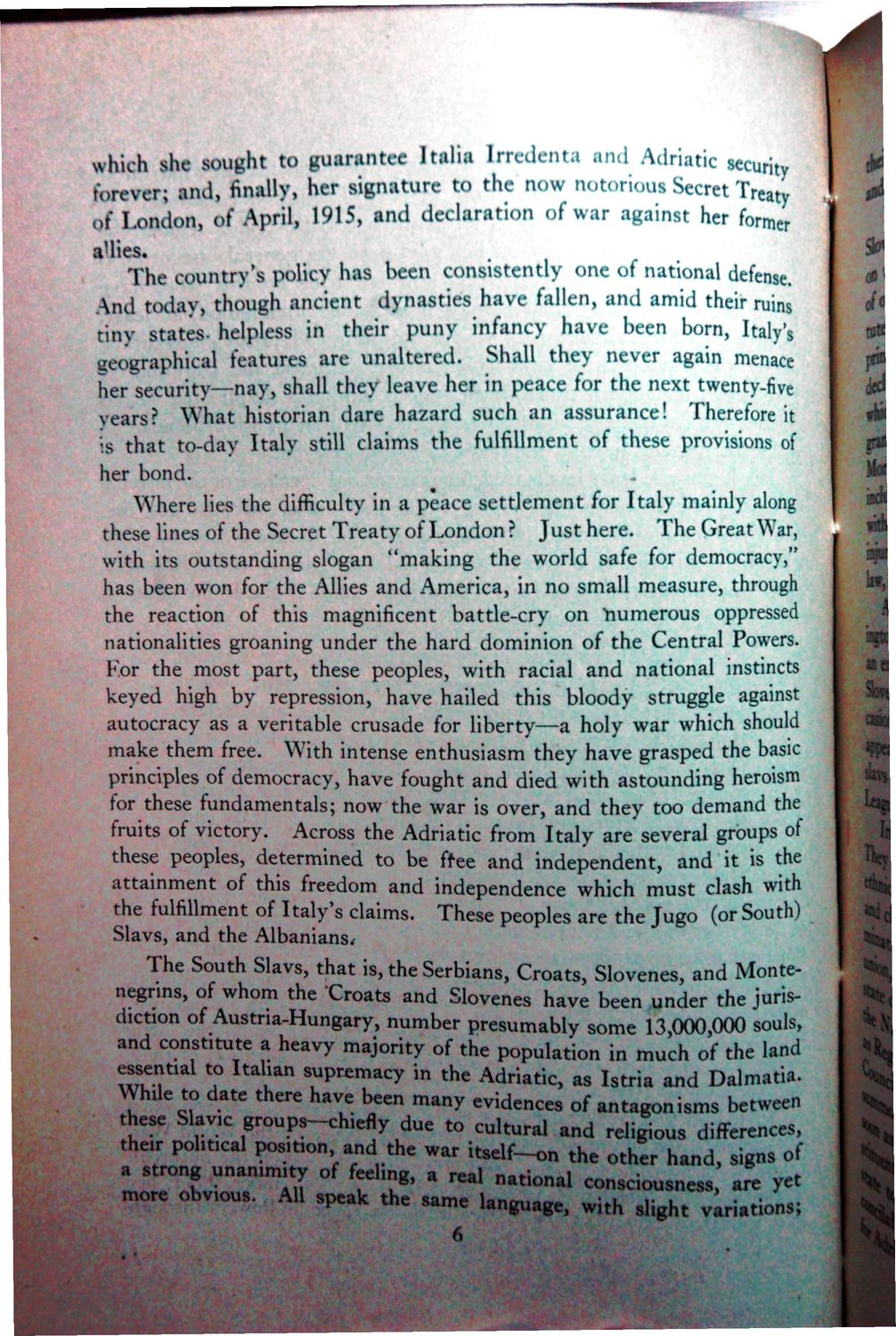| |
| |
Caption: War Publications - WWI Compilation 1923 - Article 18
This is a reduced-resolution page image for fast online browsing.

EXTRACTED TEXT FROM PAGE:
fe which she sought to guarantee Italia Irredenta and Adriatic security t'orever; and, finally, her signature to the now notorious Secret Treaty of London, of April, 1915, and declaration of war against her former 1 a lies. has been And today, though ancient dynasties have fallen, and amid their ruins born tiny states, helpless in their geographical features are unaltered. Shall they never again menace her security—nay, shall they leave her in peace for the next twenty-five vears:? What historian dare hazard such an assurance! Therefore it to-d her bond. Where lies the difficulty in a peace settlement for Italy mainly along these lines of the Secret Treaty of London ? Just here. The Great War, with its outstanding slogan "making the world safe for democracy/' has been won for the Allies and America, in no small measure, through the reaction of this magnificent battle-cry on Yiumerous oppressed nationalities groaning under the hard dominion of the Central Powers. For the most part, these peoples, with racial and national instincts keyed high by repression, have hailed this bloody struggle against autocracy as a veritable crusade for liberty—a holy war which should make them free. With intense enthusiasm they have grasped the basic principles of democracy, have fought and died with astounding heroism for these fundamentals; now the war is over, and they too demand the fruits of victory. Across the Adriatic from Italy are several groups of these peoples, determined to be ffee and independent, and it is the attainment of this freedom and independence which must clash with the fulfillment of Italy's claims. These peoples are the Jugo (or South) Slavs, and the Albanians. The South Slavs, that is, the Serbians, Croats, Slovenes, and Montenegrins, of whom the Croats and Slovenes have been under the jurisdiction of Austria-Hungary, number presumably some 13,000,000 souls, and constitute a heavy majority of the population in much of the land and While groups— tself—o consciousness, arc more obvious. All speak the same language, with sli«ht variations fi .
| |